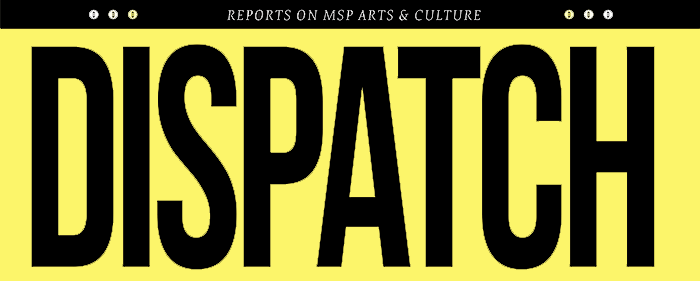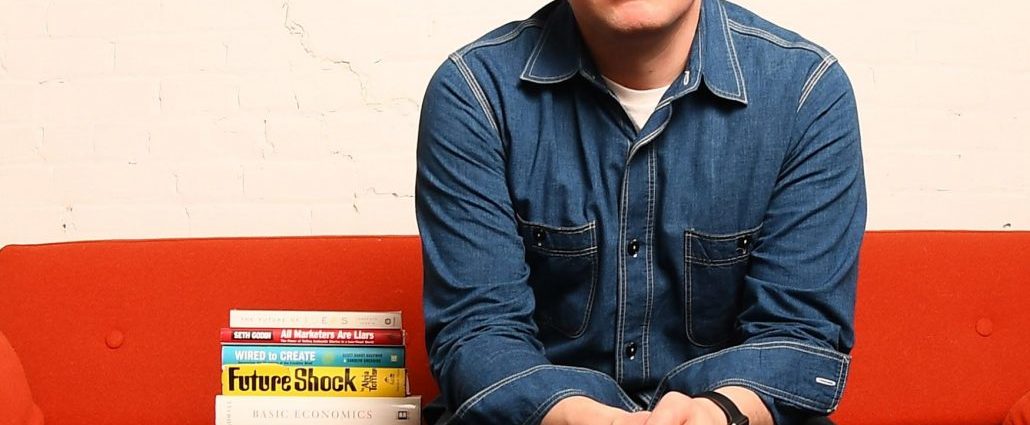The new executive director of the Minnesota Music Coalition is ready to steer the organization into new frontiers.
WORDS BY KATIE DOHMAN
The time is right for Scott LeGere. So’s the urgency.
He’s been a working musician, run a record label, worked at Paisley Park, and taught students both musical and life skills. And he believes his career was all timed in such a way that he’s bringing a special perspective to the Minnesota Music Coalition as its new executive director.
“Something technological or societal can happen and this can all go away,” he says. He says he knows, because he’s already watched it happen. “I realized how much more tenuous not just a creative career could be, but my generation’s future compared to the previous one,” he says. “If I was 5 years older, I would have gotten a job at the tail end of the label machine and not understood the change that was happening meanwhile. If I was 10 years younger, I wouldn’t understand the breadth of how things have changed.”
Despite all that upheaval, LeGere says he remains a “raging optimist.” Here’s what else he had to say about the state of music in the state of Minnesota. The following q&a has been edited for length and clarity.
What’s your perspective on the state of Minnesota music?
Before stepping into this role, as an educator, I have been trying to explain for two decades there are jobs, money, and opportunity [here]. I would play videos for students—Charlie Parr, Hayley, Cloud Cult, Dessa—you can go from jazz to classical to roadhouse blues and there’s people killing it in all of those genres in Minnesota. People as diverse as Dua Saleh and Zak Harris. We’re seeing jobs everyday from Fortune 500 brands for a 23-year-old to manage a TikTok campaign.
I think we are in an incredible position … there is so much talent—especially in a state and community of our relative size. I’m excited to leverage the MMC to educate, empower, demystify, whatever it might be. You can’t do everything. So, one of our great or good roles is being a big tent, being a convener, getting artists in room and engaged in programming as we can so they can share what’s working—answered not by “experts,” but people on the ground.
Will there be a time when musicians can make enough money to support themselves as musicians? How do you see your work fitting into that?
We worked with Minnesota Citizens for the Arts and a couple of other nonprofits to help us have a broad survey—there are 3,400 working musicians in Minnesota. That’s a tremendous number. Will they all have a full-time music career? We have to ask what that looks like. What’s interesting—there isn’t a music industry anymore. There’s an industry for every individual and it’s an a la carte solution as to how they build a career. I think of Dessa’s career, that’s funded partly by writing books and funded partly by working on podcast by BBC. I hope what the MMC is able to do is empower creatives to what works for them.
What do you think your relationship will be to venues?
Part of the flag MMC will stick in the sand is that we exist in an ecosystem. The health of that ecosystem is really important. I was just at a Chamber of Commerce meeting for the Midway of St. Paul. The health of the music community is due in part to the health of the city. It’s bigger than just the state of a venue. Talking specifically about the Midway Corridor, they need Vig Guitars at the same level artists need to have the Turf Club there. They need a lawyer and accountant down the street. We need to understand how interrelated we all are and work with everyone’s best interests in a fair and transparent way. We had a lot of consolidation and the pandemic hit the music sector hard, but I’m encouraged how diversified spaces for performance are: breweries, libraries, city parks and other public spaces. Frankly, a traditional club at 2 AM isn’t always the best place to be for a musician. I’m still pretty excited about the breadth of options we have in the cities and greater state, whether Dakota or White Squirrel or Sacred Heart or Paramount in Austin.
Do you think the addition of new venues is good for people? Should more people be touring the region instead of just playing in Minneapolis?
I believe there are a surprising number of regional opportunities that we often overlook. Everyone wants to play First Ave in the same way they dream of the Bowery or other iconic venues nationwide, but don’t forget there could be something cool down the street. Look at what Crooner’s is doing in the northeast suburbs. Further out, Dessa just played Grand Rapids. There’s a healthy excitement for music statewide. You start stringing together [radio, media, venues], and people are hungry for cultural and music exchange. I’m excited about figuring out how to build pathways, bridges, connection points, regardless of geographic location. Get more of that gig sharing and resource sharing—that would be really powerful.
What is the relevance of MMC in this environment?
I was just on a Zoom call with our Board asking that very question. In complete fairness, I ask everyone that. The help and resources you gave somebody a week ago might not be what you need today. That teaches a bit of humility. Our staff is two. We can’t do all the work. Maybe some of what the MMC does is more convening and connecting and letting artists connect and hear from each other. I don’t know a pro org that isn’t questioning its future and viability right now because everything has changed. I’ll say to any critic: When I started teaching, my lesson plans included how to get CDs on consignment at Best Buy. It would be great to go back to the cohorts in ’05 and ’06—everything I told you is now wrong, so let’s work to update that. Let’s work to point you in better directions and options. We’re going to do our darndest.
What’s inspiring is that we’re not going to do it alone—we have NEVA, Springboard, American Composers Forum, etc. doing this work. If we’re all aligning and sharing and building the best we can, the network will be even healthier and smarter and more diverse than these two people in St. Paul.
What is the value of a coalition vs all the other “arts” development organizations in Minneapolis-St. Paul?
Convening and connection—that’s what coalition means to me. Prince had a great quote when they were building Paisley Park, and David Z., one of his producers in that era, said “This building is shaping up to be big. You said you needed a private studio, but this is 16,000 square feet” And Prince’s response was: “No one can ignore an army.”
I think that’s really interesting, so many people in the media labeled him as a quiet, isolated artist—well no, he wasn’t. He was writing for people all over the world and flying people to Paisley and collaborating … all that did was bring attention to Minnesota. Rising tide lifts all ships. I sincerely hope coalition means statewide empowerment, we’re all in this together. We’re all in this to support musicians.
I’ve realized very quickly our megaphone is small. If we want messages to be amplified, we need to bring more people to that table. Maybe we’re the smaller logo on a program sheet or website, but that means there’s more people in the room, asking bigger, broader, better questions and better able to impact those who need the help.
It’s easy for me to get touchy-feely but music is a lifeline, hope, home. Everything we use to describe music is not “download, stream, CDs, t-shirts poster.” We get caught up in the accoutrements and financial implications, but it’s one of the most crucial aspects of our humanity, and keeping it vibrant and supportive and alive for musicians and supporters alike is really important.

